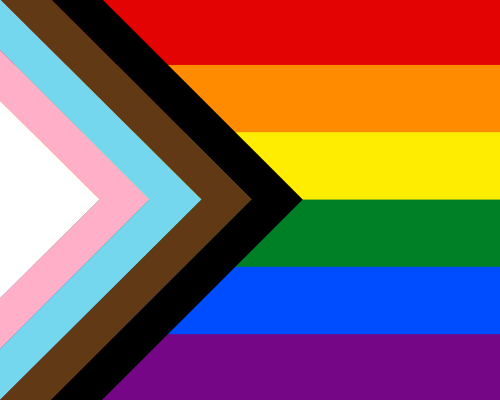Published:
Wednesday, June 14, 2023
Celebrate Pride
I love the beauty and freedom of Pride. Pride is a focused moment in which 2SLGBTQIA+ communities celebrate the full expression of all aspects of their identities and that is a glorious thing; and it is a way of being that should be allowed its full expression every month of the year and not just in June. This full expression of identity was hard-fought and hard-won. It really was not so long ago that this Pride movement was born, in part, out of the leadership of transgender women of color at Stonewall in New York in 1969, who had “had enough” discrimination, exclusion, and violence committed against them. It was not so long ago that 2SLGBTQIA+ people could not marry the spouse of their choice (same-sex marriage became legal across the country in 2015). It is even more recent that many trans and non-binary individuals have become able to legally change their names and revise the gender markers on governmental IDs – although this is not true everywhere in the country yet. I’m proud that Washington state has been a leader in these advances for 2SLGBTQIA+ communities, with ACLU-WA fighting alongside impacted community members.
I love the diversity of Pride. We use the letters “2SLGBTQIA+” in attempt to just begin to capture the diversity of these communities. “2S” refers to Two Spirit people, a pan-indigenous term with many meanings and nuances but which generally refers to Indigenous members of the non-binary, gay, and lesbian communities. The remaining letters represent Lesbian, Gay, Bisexual, Transgender, Queer (or Questioning), Intersex, and Asexual. Certainly, some people might think this number of letters is excessive. But what we are learning over time whether we are members of these communities or caring supporters, is that naming our communities allows for education, understanding, and avoiding erasure. It is a gift to be named and seen; and it’s something we all deserve. That’s what the use of these letters seeks to achieve.
I love the possibility of Pride. The celebrations that happen throughout the month of June and throughout the summer represent what our world could look like all the time. I dream of a world in which people can be fully themselves, expressing their gender, loving whom they choose to love. A world in which people do not feel threatened or alone, even suicidal because they can’t be fully themselves or because they live in fear of harm if they state the truth of their identity in the 2SLGBTQIA+ spectrum. Pride gives us a glimpse of what is possible when we just let people be, and when we are committed to keeping them safe.
Protecting what we love
Despite legally attained freedoms and positive cultural changes in viewpoint about the 2SLGBTQIA+ communities over time, sadly, liberty for 2SLGBTQIA+ communities are fully at risk.
In states like Florida and Texas, numerous laws are routinely introduced and too frequently passed which limit the rights of 2SLGBTQIA+ people, especially transgender individuals. These laws are harmful, taking away the rights of parents to support their transgender children, blocking drag artists from performing or simply reading books to kids. Numerous jurisdictions, including some localities in Washington state, attempt to ban books by or about 2SLGBTQIA+ communities. Laws such as these, whether they pass or not, create a normative frame which excludes and marginalizes 2SLGBTQIA+ community members and puts them at risk for violence and intimidation.
Hate crimes against 2SLGBTQIA+ people are still too common. We are not so far away from the mass shootings at Pulse and Club Q. Transgender people are especially vulnerable to hate crimes. Pride events around the country have been targeted with threats of violence.
Meanwhile in the Dobbs case, the case which overturned Roe v. Wade, Justice Thomas’ concurrence was clear that he thought the next thing the court should do is revisit the Obergefell v. Hodges case, a landmark case of the US Supreme Court which ruled that the fundamental right to marry is guaranteed to same-sex couples by both the Due Process Clause and the Equal Protection Clause of the Fourteenth Amendment.
These concerns got me thinking about how important it is to protect the people we love, and ensure their rights are upheld.
I don’t mind you knowing that I am a Star Wars nerd. Bear with me for a moment. There was a moment in The Last Jedi (2017) in which one of the heroes of the Resistance, Finn, operating out of pure rage and hatred of the First Order, was on the verge of ending his own life in what would surely be a failed effort to destroy his enemy. His dear friend Rose interfered and saved his life. When he asked her why she stopped him, Rose wisely stated we don’t win by fighting what we hate, but by saving what we love. I recognize my use of this quote here is not perfect — we do need to fight back against anti-2SLGBTQIA+ legislation wherever it is raised. We must not stand idly by when our 2SLGBTQIA+ community members are being discriminated against or violently attacked. Surely by now we must all understand that if we don’t protect the rights of those in the most vulnerable positions, then all our rights are ultimately at risk.
Yet, the motivating force, should be protecting what we love — the people, and their rights. If you love Pride as I do, if you love the 2SLGBTQIA+ people in your life, then we must protect their safety and their freedoms. Celebrate Pride. Celebrate Love. Fight for the rights of the 2SLGBTQIA+ community.




